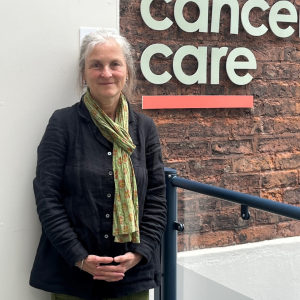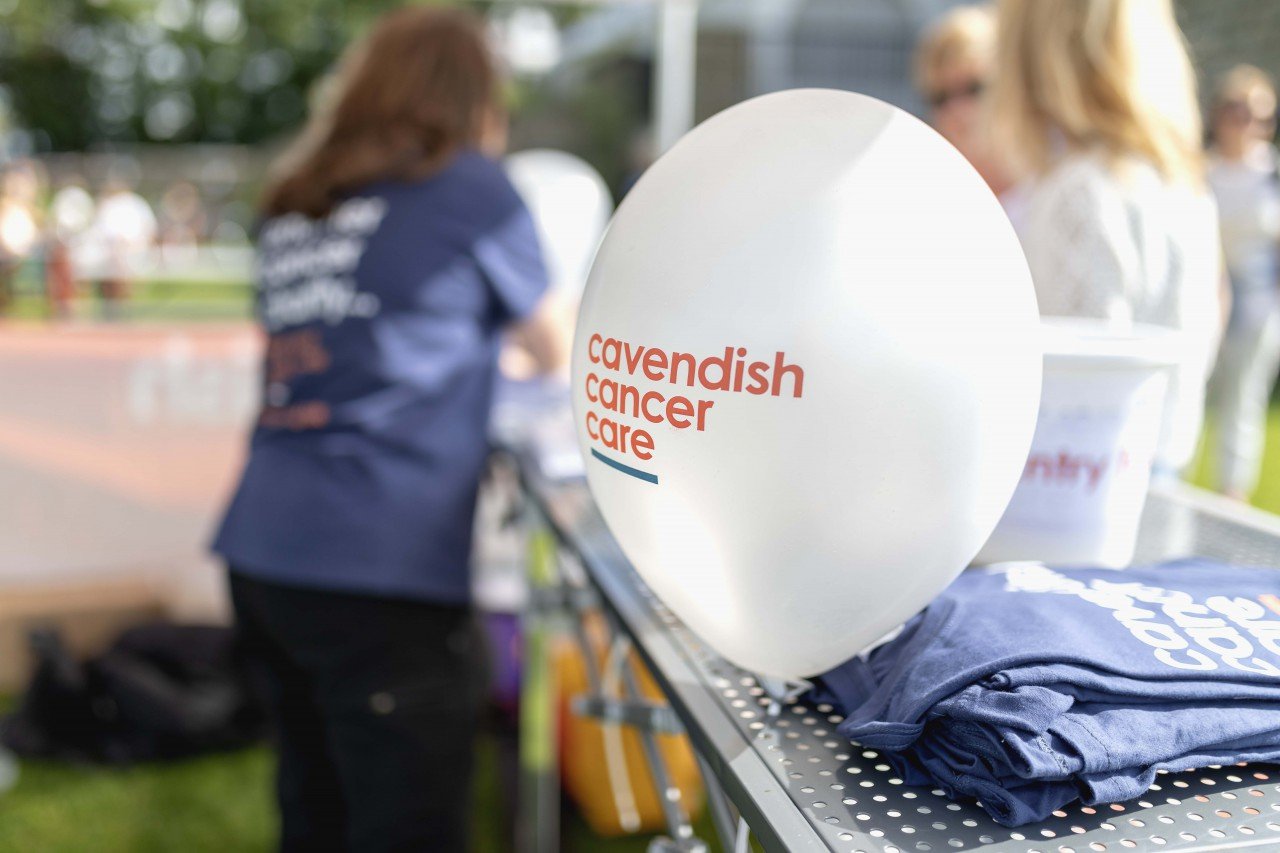Meet the Therapist blog: Delphine Sayre
June 24, 2024
Today we meet Delphine Sayre, who is a medical herbalist working for Cavendish Cancer Care. Delphine currently runs online courses and workshops focused on healthy eating and herbal medicine for Cavendish Clients.
Medical Herbalist isn’t a job you come across every day. Can you tell us about how you got into it?
I was always fascinated by the human body, my stepdad was a GP and I always had that interest, however I wasn’t good enough at chemistry to become a doctor! I’m half-French and in France people are really into plant medicines so it was always around me when I was growing up. By my mid-twenties I was living in rural Wales and not sure what to do with myself. I happened upon a book about herbal medicine, and it was like a lightbulb went off – I was like ‘this is the thing I need to do’. Herbal medicine courses were few at the time but I found an in-depth professional course in London and so I did that, whilst working part time in administration. After qualifying I was able to register with the National Institute of Medical Herbalists.
I later moved to Sheffield, where there is a strong history of using plants for medicine. I taught classes on herbal medicine at the Workers Educational Association and started to take on private clients.
How did you get involved with Cavendish Cancer Care?
In Sheffield I met David Simons, who was the original founder of Cavendish. He was originally a dentist with a strong interest in complementary therapies and we agreed that herbal medicine would be great addition to the service at the charity. I started working with Cavendish in 2001, offering one to one sessions for clients and later sharing the Head of Therapy role. I just loved the ethos at Cavendish particularly that all the services were free of charge to everyone, and we would work alongside conventional medicine – an ethos that still stands today. During the Covid pandemic I took a step back and focused on delivering online sessions with a wider focus on healthy eating and using herbs for health.
How can herbs support people’s wellbeing, especially people affected by cancer?
Herbs are great for gentle support taken daily. They are excellent for digestive problems due to medications or treatments, for fatigue, skin complaints, and for calming anxiety. There are also a number of different ways people can take herbs for example in a tea, a tincture, an ointment or as a personally blended medicine which makes them really accessible for people. I don’t usually recommend people taking herbs at the same time as active cancer treatments such as chemotherapy but they can be very useful to help rebuild the immune system after treatments or for late effects.
How do people know that advice and treatments from a medical herbalist are safe?
As with any complementary therapies, and indeed mainstream medicine, its very important to use a reputable provider who is fully qualified. I completed a 4-year full time course to qualify as a herbalist, which included great depth about the effects of herbs on the body, interactions between herbs and prescribed drugs, disease, pharmacology of plants, diagnosis and so much more. The UK approach to training for medical herbalists is very scientific – herbalists have a similar level of knowledge about the body as doctors do. You should ensure your herbalist is a member of a body such as the National Institute of Medical Herbalists. I always use ingredients from reputable suppliers, most of whom will grow their own products or have a relationship with the source supplier, and I often make my own tinctures, ointments and dried herbs for teas.
If people wanted to learn more about herbs for health, how could they do that?
An easy and fun first step would be to take a guided herb or foraging walk with a local herbalist. If you are in Sheffield then pop into Nether Edge Herbarium on London Road who can point you in the direction of local walks, short courses etc. I also teach a one year foundation course via an organisation called Heartwood. It’s not aimed at professional practice but it does give a fascinating introduction into how to use herbs for yourself and your family.
What do you enjoy most about your work with Cavendish Cancer Care?
Working with people affected by cancer is such a privilege. You meet the most amazing people who are in a crisis in their lives – it’s humbling to work with people at that level and try to help them in any way I can. The team here are also fantastic – everyone is here for a reason other than just getting paid and that shines through in everything they do.


